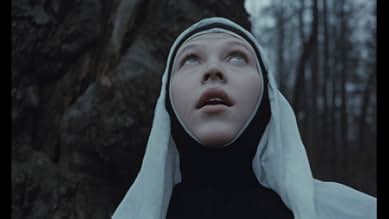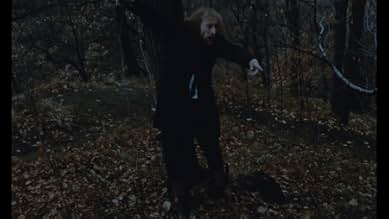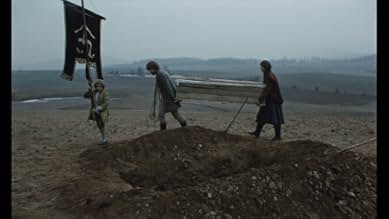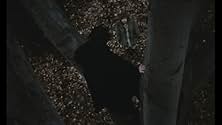IMDb RATING
7.0/10
3.3K
YOUR RATING
Young Polish noble Jakub, freed during 1793 Prussian invasion, experiences father's death, betrayal. Traumatized, he follows his savior, committing brutal murders across the country.Young Polish noble Jakub, freed during 1793 Prussian invasion, experiences father's death, betrayal. Traumatized, he follows his savior, committing brutal murders across the country.Young Polish noble Jakub, freed during 1793 Prussian invasion, experiences father's death, betrayal. Traumatized, he follows his savior, committing brutal murders across the country.
- Director
- Writer
- Stars
- Director
- Writer
- All cast & crew
- Production, box office & more at IMDbPro
Featured reviews
In Poland, a mysterious man comes to a chaotic convent to bring to Warsaw the nobleman political prisoner Jakub (Leszek Teleszynski) that imprisoned in the dungeons. The stranger requests the list of fellow conspirators to Jakub and abducts a nun to travel with Jakub in his journey back home. When he arrives in his destroyed house, he sees his father dead; his sister abused and insane; his mother in a brothel; and his girlfriend pregnant and living with his former best friend. Jakub becomes deranged and using a razor delivered by the stranger, he kills each sinner, in an irrational period of chaos and moral degradation.
"Diabel" is a messy, pointless and violent journey to insanity. The writer and director Andrzej Zulawski makes a dreadful film, with a screenplay that does not tell the milestone when the story takes place. In accordance with the DVD cover, the period is 1793, during the invasion of Poland by the Prussian army. The performances are histrionic and theatrical, and the violence is stupid with the only intention of shocking the audience. My vote is four.
Title (Brazil): "Diabel"
"Diabel" is a messy, pointless and violent journey to insanity. The writer and director Andrzej Zulawski makes a dreadful film, with a screenplay that does not tell the milestone when the story takes place. In accordance with the DVD cover, the period is 1793, during the invasion of Poland by the Prussian army. The performances are histrionic and theatrical, and the violence is stupid with the only intention of shocking the audience. My vote is four.
Title (Brazil): "Diabel"
The devil epileptically dancing the beauty of the world in front of the eyes of a dying man, the victim of his deceit and evil schemes, how cruel, ironic and jaw-droppingly macabre that can be... and the dark blue unctuous atmosphere, the claustrophobic feeling that the mazy woods, the snow give despite the haywire dynamics in an open landscape, people like pawns spinning on a chessboard manipulated and controlled through their weaknesses by master puppeteers who use lust and envy and madness as levers of their domination, God represented by the constant presence of the nun, witnessing with a neutral frozen mercifulness the gyratory display of human delirium and the devil's catalytic actions.. I know now that only after seeing this sublime film and being impacted by it I've became a true Żuławski fan
Depravity, violence, a world permanently tipped off balance.
Near the end our halfmad protagonist asks someone else if he sees the world ugly because of his illness or because it is. The other replies that the world is filled with beauty, flowers, fruit, women, then reasons that he cannot adequately describe it. Instead he will dance about it.
His dance is not beautiful though, it's a wild spasmodic flailing of arms like we're seeing an epileptic suffer a seizure.
Diabel is that dance.
Superficially an allegory on how revolutions become mired in distraction - the political hedonism of power? - and how Poland has been used and abused by so many, deeper we find the same frightful pantomime that made Possession such a terrifying beast: inner soul made visible.
Slight problem is that he does not abstract enough to hit that bedrock were every image becomes multi-layered utterance of different cosmii. Characters remain pieces of the allegoric jigsaw, pawns in a game. There is not enough emptiness from life to pour into.
Near the end our halfmad protagonist asks someone else if he sees the world ugly because of his illness or because it is. The other replies that the world is filled with beauty, flowers, fruit, women, then reasons that he cannot adequately describe it. Instead he will dance about it.
His dance is not beautiful though, it's a wild spasmodic flailing of arms like we're seeing an epileptic suffer a seizure.
Diabel is that dance.
Superficially an allegory on how revolutions become mired in distraction - the political hedonism of power? - and how Poland has been used and abused by so many, deeper we find the same frightful pantomime that made Possession such a terrifying beast: inner soul made visible.
Slight problem is that he does not abstract enough to hit that bedrock were every image becomes multi-layered utterance of different cosmii. Characters remain pieces of the allegoric jigsaw, pawns in a game. There is not enough emptiness from life to pour into.
Along with "The Silver Globe", this is my favorite Zulawski film. Why? Well, maybe because both of them are so utterly insane. Zulawski is hardly known here in the states, and the only film of his that is available domestically (thanks to Anchor Bay) is "Possession". Sad really but that's life. As the saying goes, the depth of an idea is inversely proportional to the mass perception. It isn't the case for many famous artists of course, but for Zulawski it rings true. I haven't seen any of the stuff he made while living in France (I understand that many of them are on the more erotic side of things) with the exception of the above-mentioned "Possession" and "The Importance of Love" (with Romy Schneider and Fabio Testi), which was definitely *something". I also watched Zulwaski's later effort "Szamanka" which I have no comment on because I viewed a bootleg copy in Polish with French subtitles, and I speak neither of the languages. The same basically goes for "The Silver Globe" actually, which, as far as I know, can only be seen in Polish with German subtitles. But damn it, this film (which was never even finished) was nuts with or without English subtitles. And so is "Diabel". which I was lucky enough to find WITH the English subs! Hooray!!! Why this movie scared both the erstwhile Polish communist authorities, who were highly confused by it and suspected that it carried hidden anti-government messages, and the Catholic Church, which was completely outraged for reasons quite obvious if you've seen the film, much more so than the secular authorities, is clear even thirty something years (made around 1972 and then shelved by the censors until the late 80's) after it was made. Human insanity, cruelty and depravity are all here on display, wrapped in a guise of a historical epic and punctuated by Zulawski's trademark chaotic camera work and overall delivery. Is the film excessive and gratuitously shocking? Yes! But why shouldn't it be? Zulawski was young (and surely angry) back then, and the things he was going up against were, still are, and have always been a thousand times more excessive. If you can't take it - oh well. Maybe you should pull the wool off your eyes and look around. Another reason why I chose "Diabel" and "The Silver Globe" as favs is because of the time and place. They were made in the then Eastern Block during the Cold War and on the director's native soil, which must count for something, right? - all of which might have(or not) added more poignancy to the films (don't tell that to Roman Polanski though).After you move to France, the Artist's paradise that it is, it becomes safe for you to do what you do. The chance to suffer for your art diminishes significantly. Although, of course, you could suffer financially instead, which is something many Eastern European film makers discovered after the ascent of the market economy. Then again, in the new world disorder things change rather quickly. The recent slaying of a Dutch film director (Theo van Gogh was his name, I believe) by Muslim extremists shows that an artist in need can still fully suffer if he wants to. Anyway, back to "Diabel" - I love it. It's not something to be taken lightly of course. As a friend of mine wistfully observed: "the scene where a guy gets shot in the face is one of the most memorable I've seen in any film. So jarringly sudden, I was literally shocked - I don't know why it affected my like that." And I suppose I'll just leave it at that. I mean, how often does that happen in this day and age? Blessed be the sick! Amen.
I wouldn't call this horror at least not in the traditional sense. Jakob freed from jail tries to return to his previous life with a aid who has his own agenda. The Devil is in the details indeed as you the viewer are forced to play catch up with a series of events that must be interpreted to understand the craziness and violence this movie portrays.
There is in impatience that plagues every event along with musical scores that tries as it does to build tempo and rhythm to the maniacal. Does it really matter who Jacob was? Butchery to betrayal, the nun and a whole lot of death and suffering all wrapped up in a wacky 70's score. Best not to leave out that almost every character is full of self loathing.
Not sure if I'd watch it twice though, the dialog isn't very captivating and the story isn't really what you are here for. You watch it because someone didn't want you to see something with a powerful political message. Like having your world turned upside down. So you'll watch it like I did, hoping to find something everyone else missed.
There is in impatience that plagues every event along with musical scores that tries as it does to build tempo and rhythm to the maniacal. Does it really matter who Jacob was? Butchery to betrayal, the nun and a whole lot of death and suffering all wrapped up in a wacky 70's score. Best not to leave out that almost every character is full of self loathing.
Not sure if I'd watch it twice though, the dialog isn't very captivating and the story isn't really what you are here for. You watch it because someone didn't want you to see something with a powerful political message. Like having your world turned upside down. So you'll watch it like I did, hoping to find something everyone else missed.
Did you know
- TriviaThe film was banned in communist Poland.
- ConnectionsFeatured in Brows Held High: Häxan (2012)
- How long is The Devil?Powered by Alexa
Details
Contribute to this page
Suggest an edit or add missing content



























